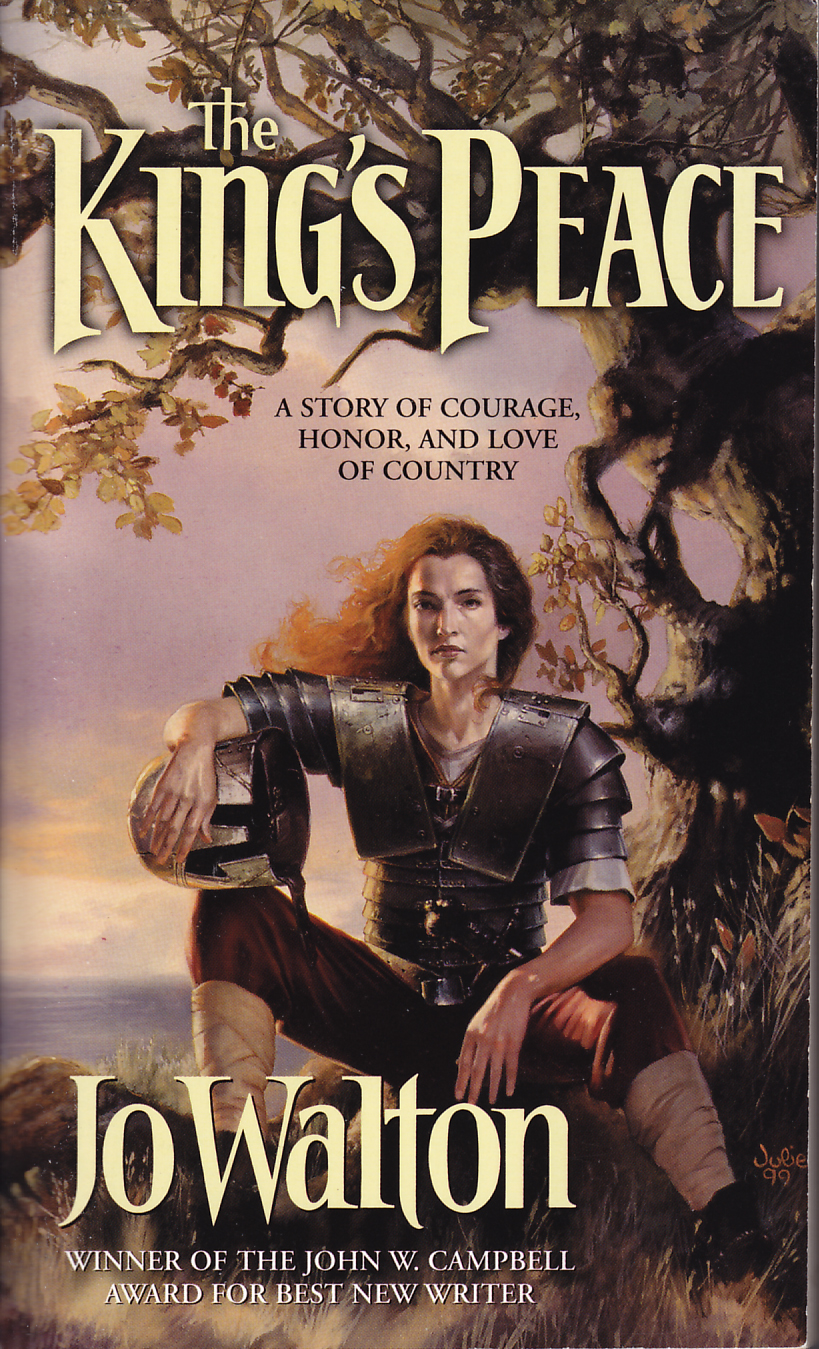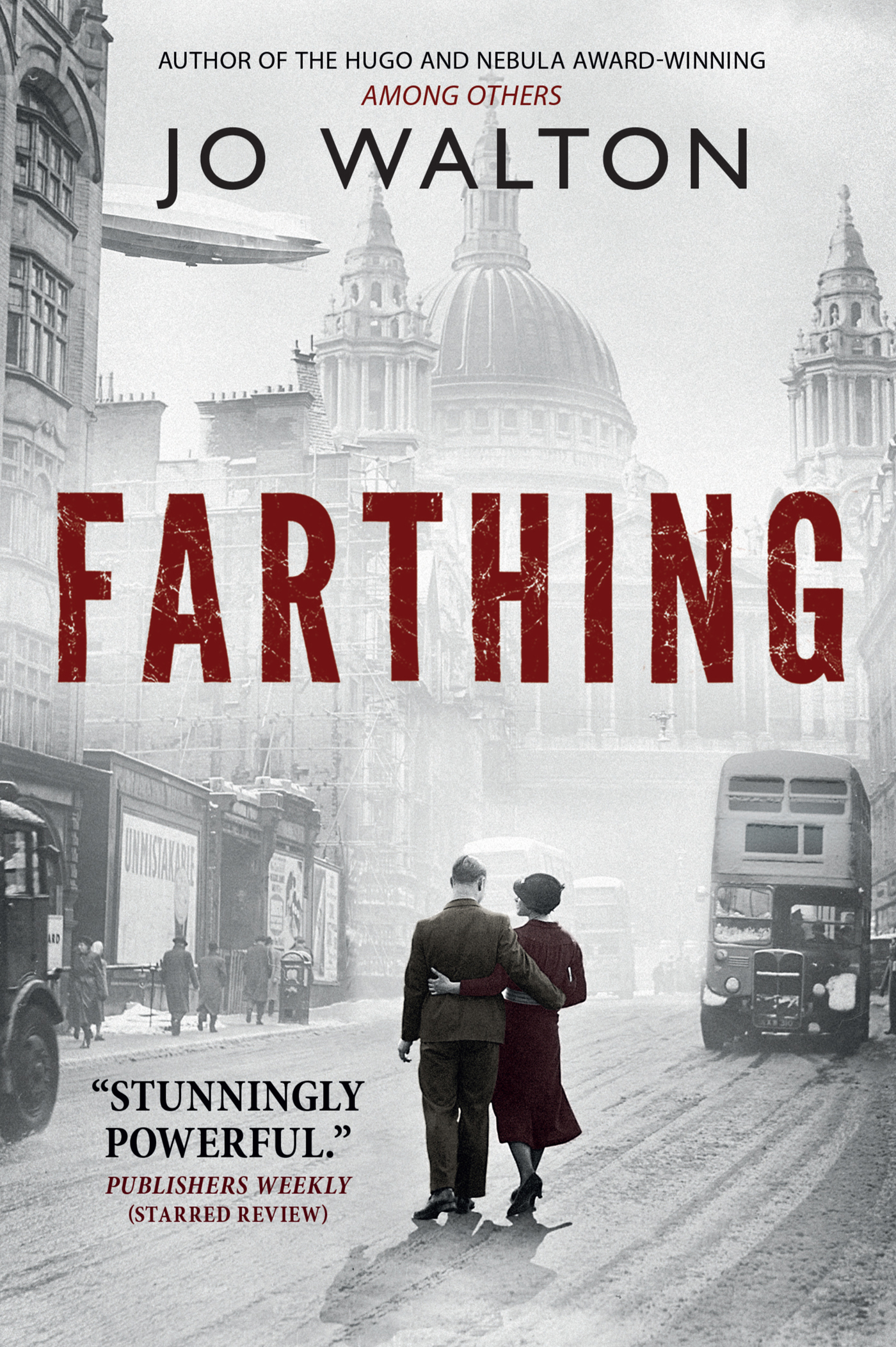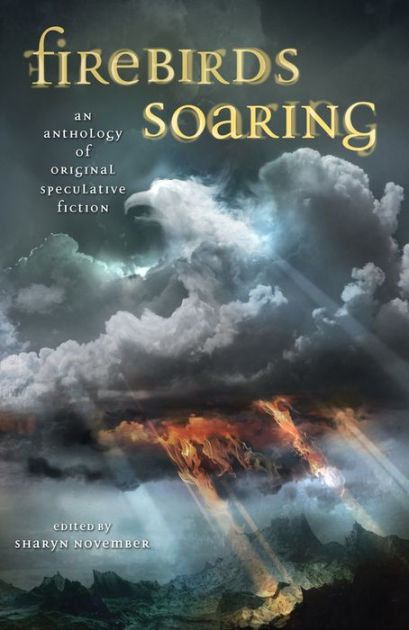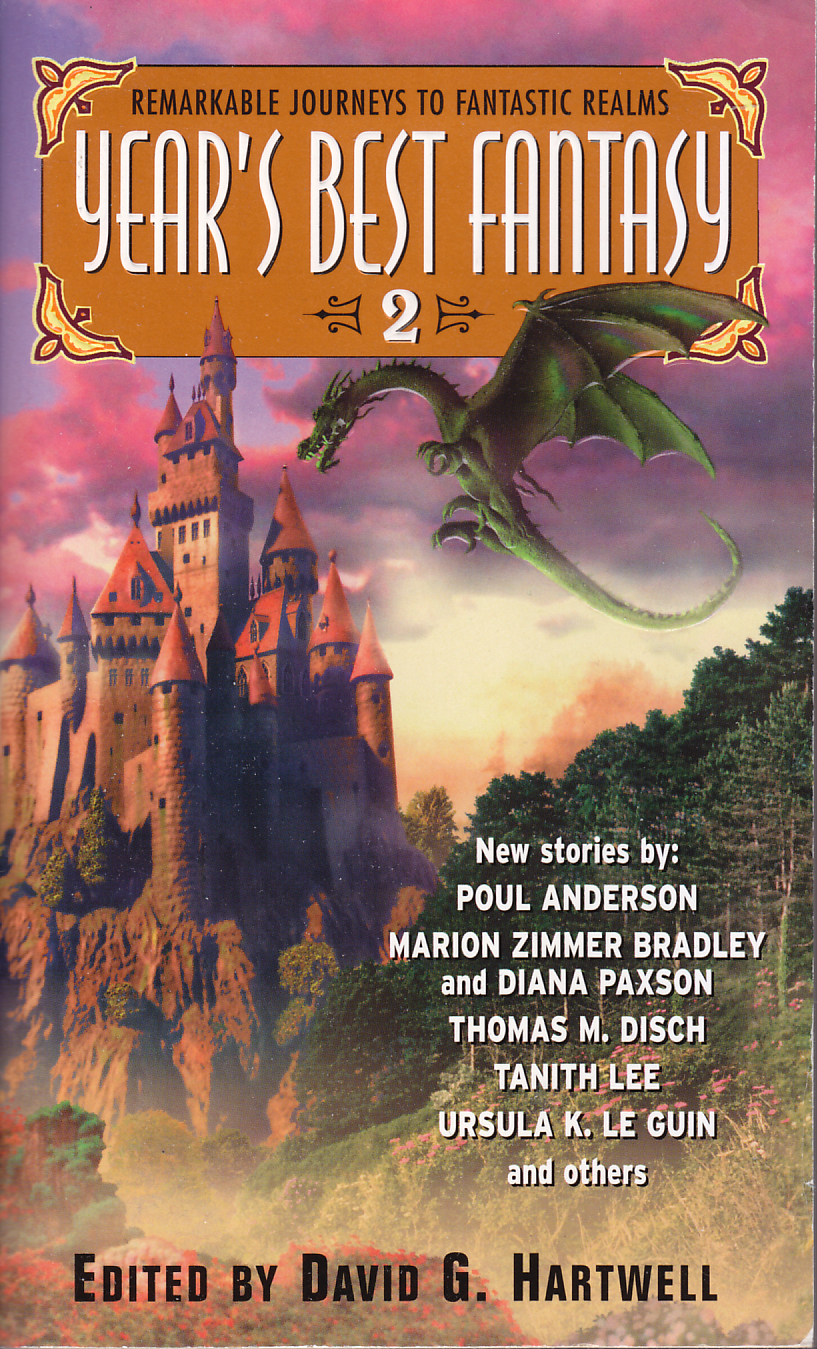Jo Walton
Books: Fantasy
Sulien ap Gwien: The King's Peace (2000), The King's Name (2001)
Small Change: Farthing (2006)
Anthologies
Year's Best Fantasy 2 (2002), Firebirds Soaring (2009)
In actuality, there are really three books in two. The first book, The King's Peace is actually two books, "The King's Peace" and "The Kings Law" which are just a little shorter than the second book, The King's Name.
The tale is a history of a world that is similar to, but not exactly, the British Isles, so there is a sense of familiarity, without actually being something real.
It is the tale of King Urdo of Tir Tanagiri, as told by Sulien ap Gwien, a woman warrior who is as central to the events she is retelling as King Urdo.
The King's Peace (2000)
 The first book, The King's Peace, tells of how King Urdo wages war in Tir Tanagiri to achieve peace, and then how the peace is held together as the king creates the law to uphold the peace, but it also interweaves the life of Sulien, telling her story amidst the tale. It spans more than a decade, and I did find the jumps in time slightly confusing in parts, when I lost track of precisely how many years in the future we'd gone, although giving the ages of children did help a bit to keep the time line straight. It wasn't a huge problem, but it did cause me to have to go back a couple of times to determine how much time had passed, and it also came across as a little choppy in places, as we jumped from time to time, although the fact that the book was written as a memoir does help explain the jumps.
The first book, The King's Peace, tells of how King Urdo wages war in Tir Tanagiri to achieve peace, and then how the peace is held together as the king creates the law to uphold the peace, but it also interweaves the life of Sulien, telling her story amidst the tale. It spans more than a decade, and I did find the jumps in time slightly confusing in parts, when I lost track of precisely how many years in the future we'd gone, although giving the ages of children did help a bit to keep the time line straight. It wasn't a huge problem, but it did cause me to have to go back a couple of times to determine how much time had passed, and it also came across as a little choppy in places, as we jumped from time to time, although the fact that the book was written as a memoir does help explain the jumps.
There is no real conclusion at the end of the first book, so make sure that you have book two when you start book one.
(Note to authors: I hate cliffhangers, and so many of your write them, won't buy and read a series until it is concluded, unless I know for certain that there is a sense of conclusion at the end of each book.)
Cover by Julie Bell
The King's Name (2001)
 The second book, The King's Name, tells of the Civil War, fostered by Morthu, that split the land, family, and friends apart. The time line is shorter in this book, and I didn't have the problems of keeping track of time.
The second book, The King's Name, tells of the Civil War, fostered by Morthu, that split the land, family, and friends apart. The time line is shorter in this book, and I didn't have the problems of keeping track of time.
I particularly liked the fact that in Sulien's land, female warriors are accepted as normal. As far as I'm concerned, such tales are far preferable the ones where a woman has to prove herself in a man's world. There's enough of that in reality, thank you.
There is also a thread of religious conquest and the morality of it. The faith of the White God is a parallel to Christianity, and the spread of Christianity throughout the British Isles. (I'm now curious as to whether the spread of Christianity through the British Isles followed a similar path, or was more akin to the spread of Christianity through the Roman Empire.)
Jo Walton does a good job building characters that come across as real, especially in the conflicts of family and friends, and created a land that I can easily imagine, and seemed quite familiar, as if it were something I'd read about in a history book.
I would definitely recommend these books to anyone who likes sword and sorcery.
And kudos for having a realistically dressed heroine on the cover.
Cover by Julie Bell
March 2005 | Rating: 8/10
Small Change
Farthing (2006)
 Wow. That was far more depressing than I expected.
Wow. That was far more depressing than I expected.
It's 1949, and Great Britain remains independent after its "Peace with Honor" with Hitler. The war between Hitler and the Soviet Union continues on, but in Britain labor unions are starting to emerge to ask for better pay and working conditions.
The "Farthing Set," who were behind the peace with Hitler, are gathered at Farthing Castle for the weekend–ostensibly for pleasure, but with the Farthing Set politics is never too far away as they plan for an upcoming important vote in Parliament.
The story goes back and forth between two narrators: Lucy Kahn, the daughter of the owners of Farthing Castle, and Inspector Carmichael of Scotland Yard who is sent out to Farthing Castle to investigate a murder.
The backdrop to the murder mystery is the politics in Great Britain as it continues to come to terms with peace with Hitler and the Jews in its own country. It is both fascinating and depressing to see Britain slowly begin to come apart at the seams, as various individuals and groups are slowly singled out. It's also fascinating to see who ends up in control of other nations around the world, including the US.
But it is a depressing story, as the backdrop of politics begins to take a larger and larger role in the story, and you see oppression against minorities beginning to raise its head. But despite that, it's a very good story, well worth reading, and I've ordered the sequel, although it seems as if some of the characters about whom I am concerned don't seem to be in the sequel.
- December 2008 | Rating: 8/10
- July 2014
I had forgotten how dark and depressing this this story is.
Mind you, it's good, but it has the feel of a dystopia without actually being a dystopia.
It's 1949, but not 1949 as we knew it. For England, World War II ended when England made peace with Hitler. Charles Lindburg is president of the US, and Hitler's continental conquests remain at war with the USSR.
That's where all the dark comes from. Hitler rules Europe, there is not Israel, and the concentration camps remain open, being populated by the Jews and Gypsies and other undesirables in each new country Hitler conquers.
The whole idea makes me feel uneasy and slightly nauseous, and that feeling remained even after I closed the book.
The light parts are, oddly enough, the murder mystery and the half of the story told by Lucy, whose parents are the Farthing set, and whose mother controls much of English political policy through the various men in her life.
Lady Eversley's political career had not been a thing of statistics, of positions held and relinquished, elections lost and won, but of influence, through her husband, her brother , her friends, her money. All officialdom recorded of Lady Eversley is that she was born, married, and had two children.
But Lucy isn't a good Farthing child–she has gone and married a Jew, something for which her mother has refused to forgive her.
So yeah. Maybe that part isn't so light and cheerful after all.
But there are so many marvelous lines, such as:
"But that doesn't make it acceptable," I said at once. "The standard is not to be better than the worst thing available.
So, it's a very good story, that ends very depressingly, but still remains a very good book.
Published by Tor Books
Rating: 7/10
Year's Best Fantasy 2 (2002) edited by David G. Hartwell
- "The Finder" by Ursula K LeGuin
- "Senator Bilbo" by Andy Duncan
- "Big City Littles" by Charles de Lint
- "What the Tyger Told Her" by Kage Baker
- "In the Shadow of Her Winds" by Ashok Banker
- "The Heart of the Hill" by Marion Zimmer Bradley & Diana L. Paxson
- "Queen" by Gene Wolfe
- "The Black Heart" by Patrick O' Leary
- "On the Wall" by Jo Walton
- "Hell is the Absence of God" by Ted Chiang
- "The Man Who Stole the Moon" by Tanith Lee
- "Firebird by R. Garcia Robertson
- "My Case for Retributive Action" by Thomas Ligotti
- "The Shadow" by Thomas M. Disch
- "Stitchery" by Devon Monk
- "To Others We Know Not Of" by Kate Riedel
- "The Lady of the Winds" by Poul Anderson
- "His Own Back Yard" by James P. Blaylock
- "A Place to Begin" by Richard Parks
- "Nucleon" by David D. Levine
- "My Stolen Sabre" by Uncle River
- "Apologue" by James Morrow
Published by Harper Voyager
Firebirds Soaring (2009) edited by Sharyn November

- A Ticket to Ride by Nancy Farmer
- A Thousand Tails by Christopher Barzak
- All Under Heaven by Chris Roberson
- Singing On a Star by Ellen Klages
- gg Magic by Louise Marley
- Flatland by Kara Dalkey
Dolly the Dog by Soldier by Candas Jane Dorsey - Ferryman by Margo Lanagan
- The Ghosts of Strangers by Nina Kiriki Hoffman
- Twilight Tales by Jo Walton
- The Dignity He's Due by Carol Emshwiller
- Power and Magic by Marly Youmans
- Courtship by Sherwood Smith
- Little Red by Jane Yolen & Adam Stemple
- The Myth of Fenix by Laurel Winter
- Fear and Loathing in Lalanna by Nick O'Donohoe
- Bone by Chewer's Legacy by Clare Bell
- Something Worth Doing by Elizabeth E. Wein
Published by Firebird

